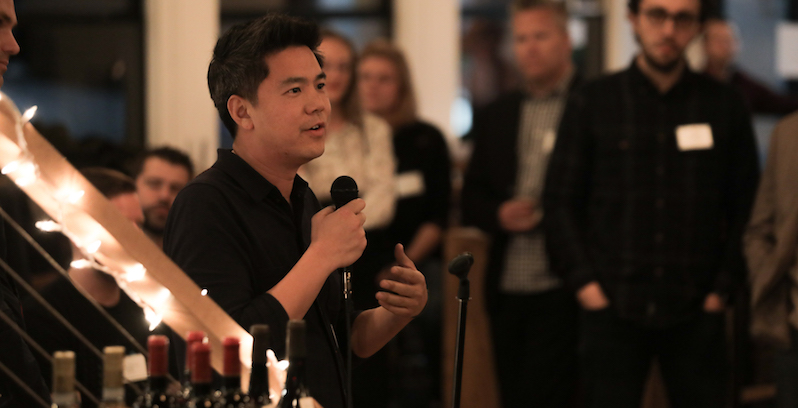
When did the technology adoption trend that led to gig economy tech startups like Uber, DoorDash, Instacart, Thumbtack, and TaskRabbit begin? Back in 1998, in the early days of the dot-com bubble, founders Beerud Sheth and Srinivas Anumolu started Elance, an online staffing platform based in Mountain View. Now, the company goes by the name Upwork, voted #1 for freelance hiring, with 28M users and $168.8M raised. By connecting part-time workers with employers in a seamless fashion, Elance pioneered the way for today’s gig economy unicorns.
In 2005, Beerud founded Gupshup, a smart messaging platform that enables users to communicate and share their short messages privately and publicly. Now, the company is onto their Series E with over 100 employees. First, it was the gig economy, now, it’s artificial intelligence. Throughout his 20+ years growing startups successfully, Beerud seems to have a knack for identifying and commercializing new technologies on a large scale. In our interview with the tech pioneer, we learned:
- The one major shift in technology that founders can take advantage of today
- Why founders need more grit and perseverance than you can imagine
- The changes in the investment landscape since the dot-com bubble and how founders can make the most of them
Founders need more grit and perseverance than you can imagine. Most founders are smart and hard-working. But not everyone persists. @beerud
Q: You founded Elance in 1998, towards the beginning of the dot-com bubble. Your current startup, GupShup, was founded in 2005 and sustained through the dot-com bust. Any war stories?
Beerud: Well, things were so different in 1998. For example, Elance got started in New York, but we eventually made the trip to Silicon Valley for funding, as many startups did and still do. The move was sort of lock stock and barrel, and the entire team moved at once— kids, family, boats, pets, you name it. This was pre 9/11 so it was during the time of the stereotypical ‘new gold rush to the west’. We were actually greeted at the airport in San Francisco by a bunch of reporters who wanted to conduct live interviews. I guess the biggest takeaway from that was be flexible, and be ready to take a leap. We moved from New York, a city full of life and light, to Sunnyvale, where everything closes down at 9pm. But it was worth it. Besides that, lots more war stories to share including:
- 2 global financial meltdowns
- Multiple strategy pivots
- Leading teams through major changes
- Keeping investors and board engaged
- And more.
Q: In the context of changes to the tech industry as a whole, what challenges do you face as a founder now, that did not exist when you started Elance in 1998?
Beerud: Three things:
- Business and teams are much more global now. Even at Gupshup we have 150 people in India and 4 or 5 in the Bay Area. It’s very distributed and I end up traveling at least once a quarter. At Elance, we started in Silicon Valley and to this day, the bulk of the company is here. While we have hundreds of employees at Upwork in Silicon Valley, there are a few thousand freelance employees all over the world using Upwork itself. A globalized team used to be the exception and now it’s the norm. Distances have shrunk more than we realize, and that has implications.
- Innovation cycles are faster; so there’s a need to adapt quicker. Think about it. PC took 20 years to get to one billion users, and the mobile era took 5 years to get to 1 billion. Now you have apps and services who only need a few months to get to that same number of users. In that sense development cycles are dramatically speeding up, because every new layer of tech is being built on the foundation of the previous layers. You don’t start from scratch— the fact that everyone has smartphones means that if you have a good service and strong word of mouth, it spreads much more quickly. Which you can take as good or bad. You can get started faster now, but that also means there’s a ton of competition, so you need to be that much more prepared.
- Infrastructure is so much more accessible now. In the early days at Elance, we spend millions of dollars to secure servers and computers, and now I can get that caliber of hardware and rent it for a couple hundred bucks a month. What happens is the cost of startups decreases— which means anyone in a garage can build a startup without spending a fortune. Of course, the business and product has to be compelling, but it’s a lot easier than it used to be. Which again, leads to the issue of over-saturation.
You can get started faster now, but that also means there’s a ton of competition, so you need to be that much more prepared. @beerud
Q: In 2014, Elance and Odesk merged to form Upwork. Today, more than 2 million businesses tap into Upwork to find, hire, and pay over 12 million freelancers. How is the gig economy that Elance pioneered effecting technology today?
Beerud: Gig economy is everywhere. Hiring people for fractional time is increasingly common. Companies such as Uber, DoorDash, Instacart, Thumbtack, TaskRabbit and their like are direct descendants of ideas pioneered by Elance. The impact of the gig economy is going to continue to play out over many years until people will wonder what “full-time” jobs meant. Upwork is a company for the ages.
Q: You’ve experienced Silicon Valley, as a founder, for the last 20 years. What is one major shift you have seen that founders can take advantage of at the moment?
Beerud: The shift to AI-powered conversational experiences is a once-in-a-decade opportunity to rethink all computing experiences. Disruptions like this create massive opportunities.
The shift to AI-powered conversational experiences is a once-in-a-decade opportunity to rethink all computing experiences. @beerud
Q: You raised $94.8M for Elance and $44.1M for GupShup. How has the funding landscape changed in the last few years? What advice would you give to founders who are fundraising for the first time?
Beerud: There’s a lot more money out there than before. Also, a lot more entrepreneurs that continue to invest back. My advice to first-time founders would be to validate key assumptions before approaching investors. Also, to remember that they’re investing in you as much as the idea – so build trust and confidence in them.
Q: What is one thing you wish you knew at the beginning of your journey as a founder that you know now?
Beerud: That founders need more grit and perseverance than you can imagine. Most founders are smart and hard-working. But not everyone persists.
Grit is required because timing plays a big role, yet is hard to predict. Therefore, you often have to persevere until the external factors align.
Build a huge business. Rinse and Repeat. @beerud
Q: What’s next for you? What are the risks that you see moving forward?
Beerud: Build a huge business. Rinse and Repeat.






